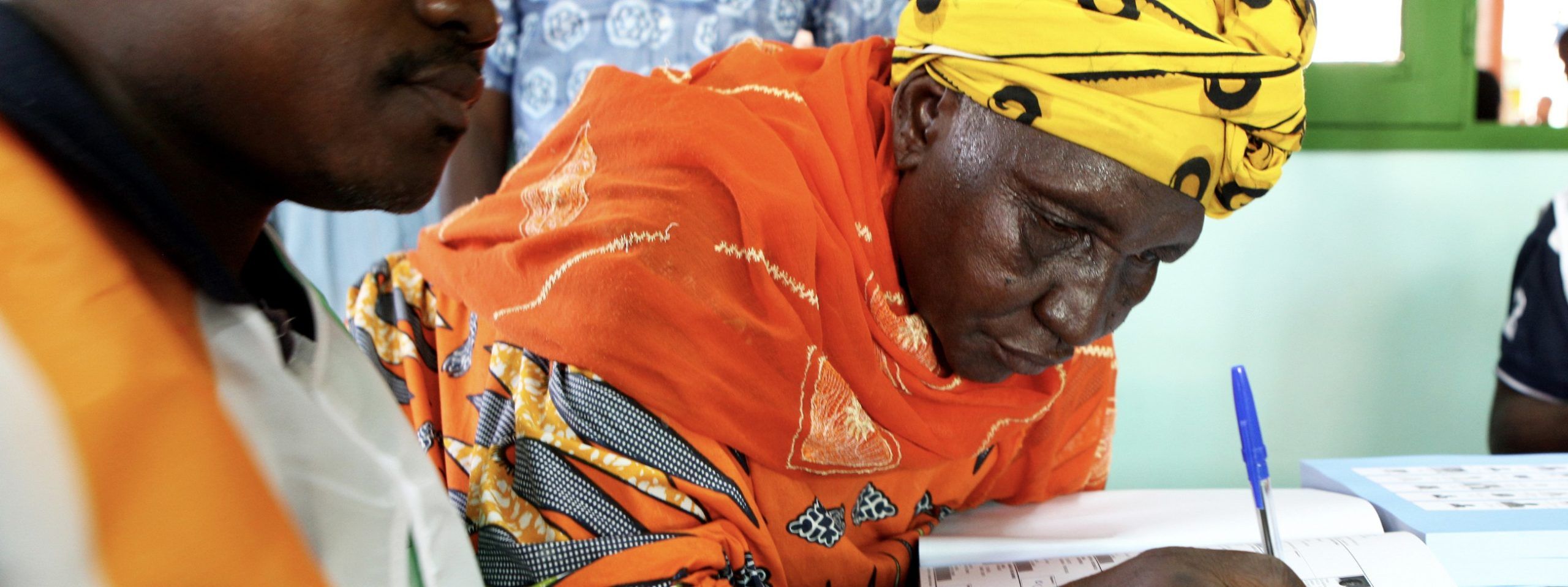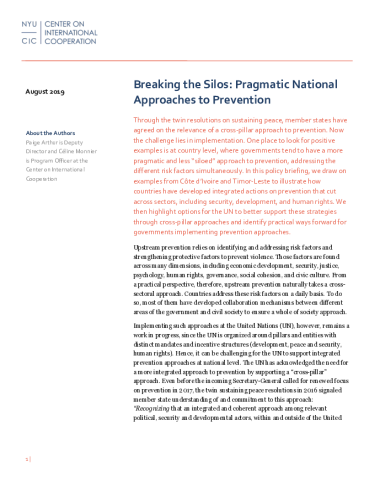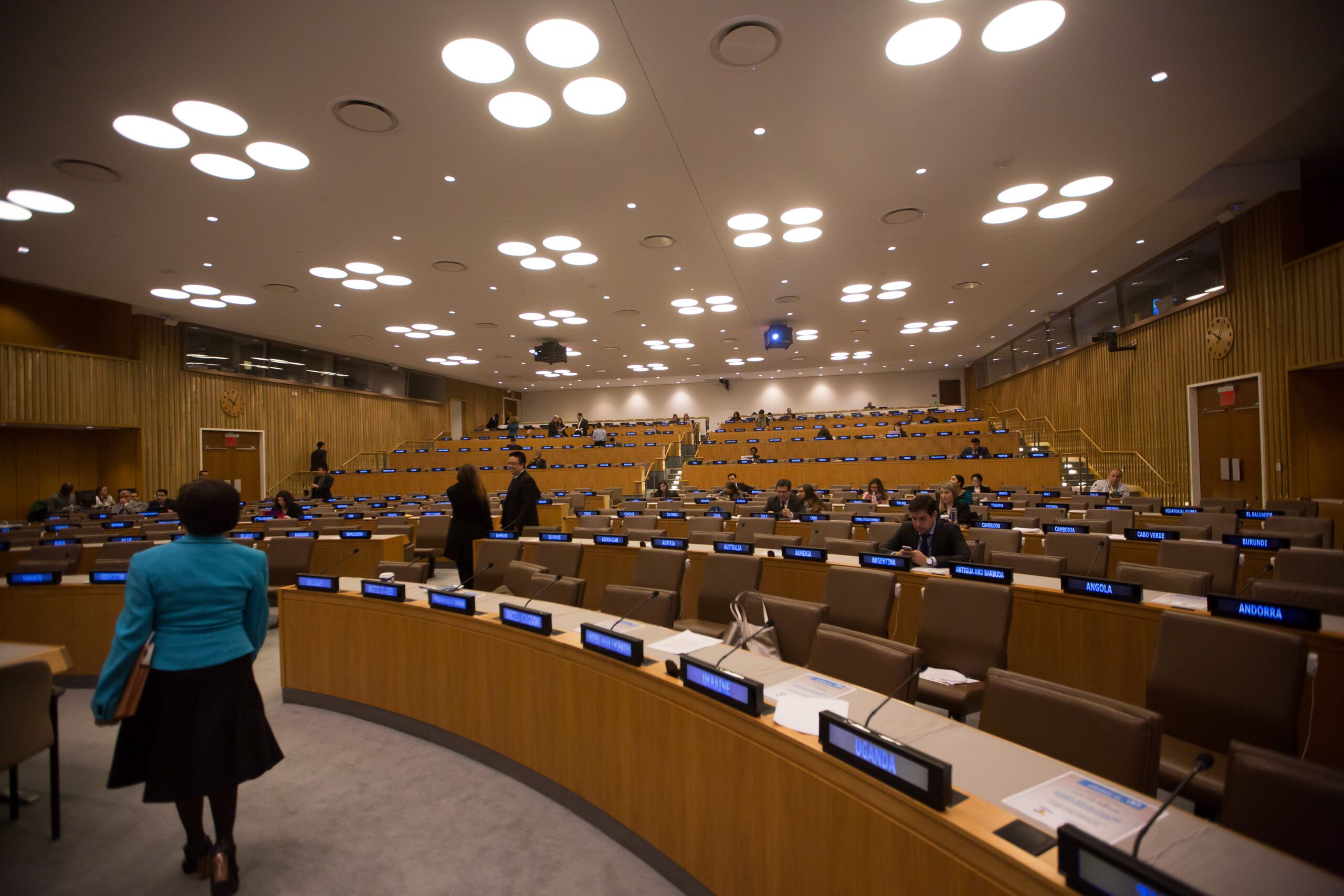In this policy briefing, our fifth in our series on prevention at the UN, we draw on examples from Côte d’Ivoire and Timor-Leste to illustrate how countries have developed integrated actions on prevention that cut across sectors, including security, development, and human rights. We then highlight options for the UN to better support these strategies through cross-pillar approaches and identify practical ways forward for governments implementing prevention approaches.

Upstream prevention relies on identifying and addressing risk factors and strengthening protective factors to prevent violence. Those factors are found across many dimensions, including economic development, security, justice, psychology, human rights, governance, social cohesion, and civic culture. From a practical perspective, therefore, upstream prevention naturally takes a cross-sectoral approach. Countries address these risk factors on a daily basis. To do so, most of them have developed collaboration mechanisms between different areas of the government and civil society to ensure a whole of society approach.
Implementing such prevention approaches at the United Nations (UN), however, remains a work in progress, since the UN is organized around pillars and entities with distinct mandates and incentive structures (development, peace and security, human rights).
This policy briefing surveys national efforts in Côte d’Ivoire and Timor-Leste that demonstrate how countries themselves undertake integrated, cross-sector approaches to addressing risks and enhancing their resilience to violence. Based on these practical examples, the briefing suggests specific steps that the UN can take to support a more pragmatic, cross-pillar approach to upstream prevention.
Read the full paper: Breaking the Silos: Pragmatic National Approaches to Prevention.pdf
More in the prevention series:
- Unpacking Prevention: Member State Perspectives (April 16, 2019)
- Nationally Led Prevention: Practical Examples of Approaches to Risk and Resilience (June 25, 2019)
- The Prevention Agenda: Mapping Out Member States’ Concerns (July 2, 2019)
- Creating the Political Space for Prevention: How ECOWAS Supports Nationally Led Strategies (August 29, 2019)
- Development and Prevention: National Examples of Linkages (August 31, 2019)


